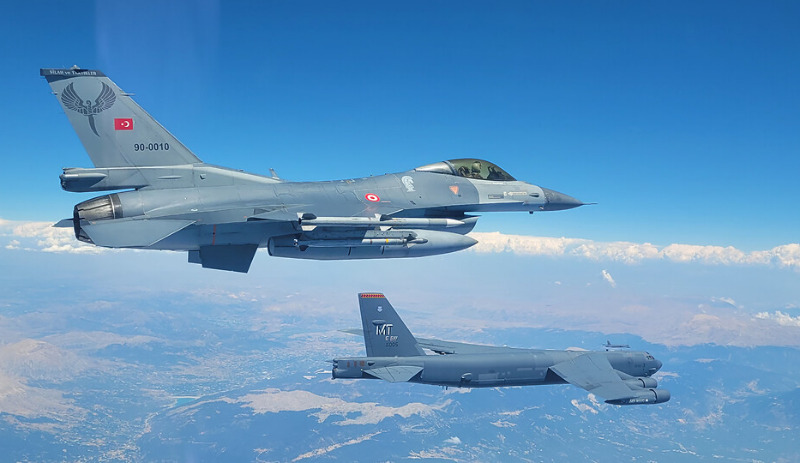Turkey is currently in discussions with the United States about a major program to acquire new F-16s and upgrade its older fleet. The goal is to lower costs due to financial constraints while seeking more industrial advantages. The discussions also involve purchasing fewer F-16 upgrade kits, reduced munitions, and an offset agreement for domestic production of F-16 components. Ankara is also working to eliminate all US sanctions and restrictions on its defense industry.
Simultaneously, Turkey is addressing Germany’s concerns regarding the potential sale of Eurofighter jets and is interested in acquiring German warship engines and ensuring the supply of Siemens-made equipment for the Akuyu nuclear power plant.
After extensive efforts, Turkey has confirmed the purchase of new F-16 fighters from the United States. This confirms Turkey’s position as the largest foreign operator of the F-16 fighter jet.
Moreover, Turkey is focused on modernizing its air force by upgrading its F-16 fleet. The country aims to enhance its radar and precision capabilities through the integration of new technologies.
In May, the Turkish Air Force tested the accuracy of laser-guided aerial bombs using locally based F-16s as the delivery platform. These tests are part of an ongoing effort to enhance precision. The F-16 fighters have been upgraded with a new Turkish mission computer as part of the Ozgur program, and a major milestone was achieved with the successful integration of the Murad AESA radar. These advancements enhance the aircraft’s capabilities for various functions, including airborne air-to-air, air-to-ground, SAR, and electronic warfare functionalities.
The LGK-82 and LGK-84 are state-of-the-art laser guidance kits designed to improve the precision of conventional bombs. These kits are attached to standard Mk-82 and Mk-84 bombs, transforming them into precision-guided weapons.



